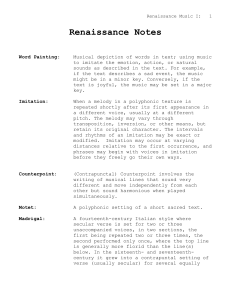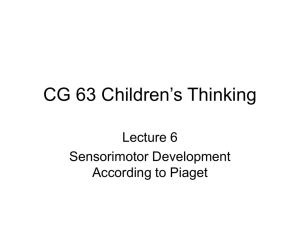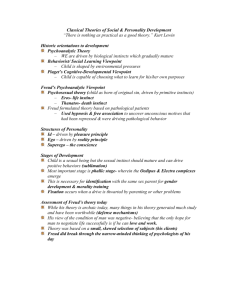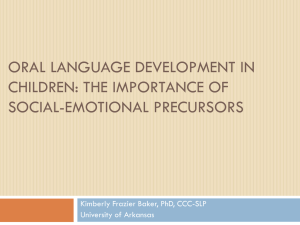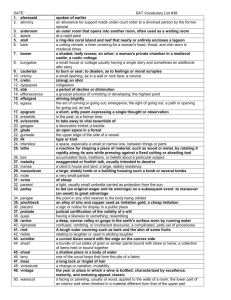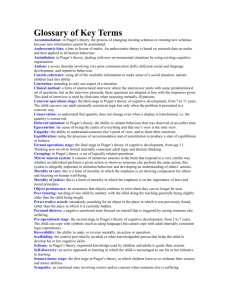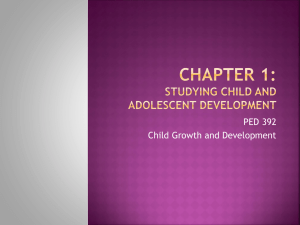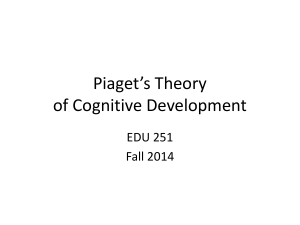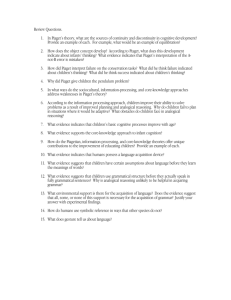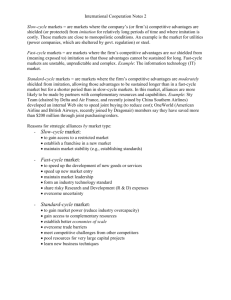Imitation According to Piaget
advertisement
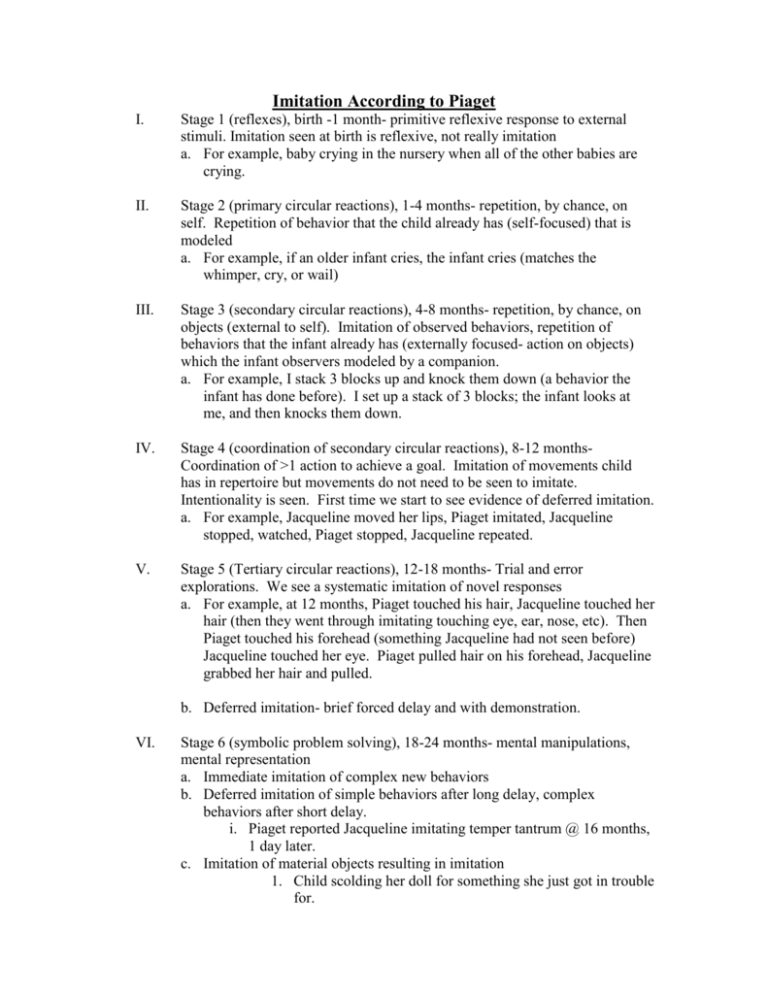
Imitation According to Piaget I. Stage 1 (reflexes), birth -1 month- primitive reflexive response to external stimuli. Imitation seen at birth is reflexive, not really imitation a. For example, baby crying in the nursery when all of the other babies are crying. II. Stage 2 (primary circular reactions), 1-4 months- repetition, by chance, on self. Repetition of behavior that the child already has (self-focused) that is modeled a. For example, if an older infant cries, the infant cries (matches the whimper, cry, or wail) III. Stage 3 (secondary circular reactions), 4-8 months- repetition, by chance, on objects (external to self). Imitation of observed behaviors, repetition of behaviors that the infant already has (externally focused- action on objects) which the infant observers modeled by a companion. a. For example, I stack 3 blocks up and knock them down (a behavior the infant has done before). I set up a stack of 3 blocks; the infant looks at me, and then knocks them down. IV. Stage 4 (coordination of secondary circular reactions), 8-12 monthsCoordination of >1 action to achieve a goal. Imitation of movements child has in repertoire but movements do not need to be seen to imitate. Intentionality is seen. First time we start to see evidence of deferred imitation. a. For example, Jacqueline moved her lips, Piaget imitated, Jacqueline stopped, watched, Piaget stopped, Jacqueline repeated. V. Stage 5 (Tertiary circular reactions), 12-18 months- Trial and error explorations. We see a systematic imitation of novel responses a. For example, at 12 months, Piaget touched his hair, Jacqueline touched her hair (then they went through imitating touching eye, ear, nose, etc). Then Piaget touched his forehead (something Jacqueline had not seen before) Jacqueline touched her eye. Piaget pulled hair on his forehead, Jacqueline grabbed her hair and pulled. b. Deferred imitation- brief forced delay and with demonstration. VI. Stage 6 (symbolic problem solving), 18-24 months- mental manipulations, mental representation a. Immediate imitation of complex new behaviors b. Deferred imitation of simple behaviors after long delay, complex behaviors after short delay. i. Piaget reported Jacqueline imitating temper tantrum @ 16 months, 1 day later. c. Imitation of material objects resulting in imitation 1. Child scolding her doll for something she just got in trouble for.
